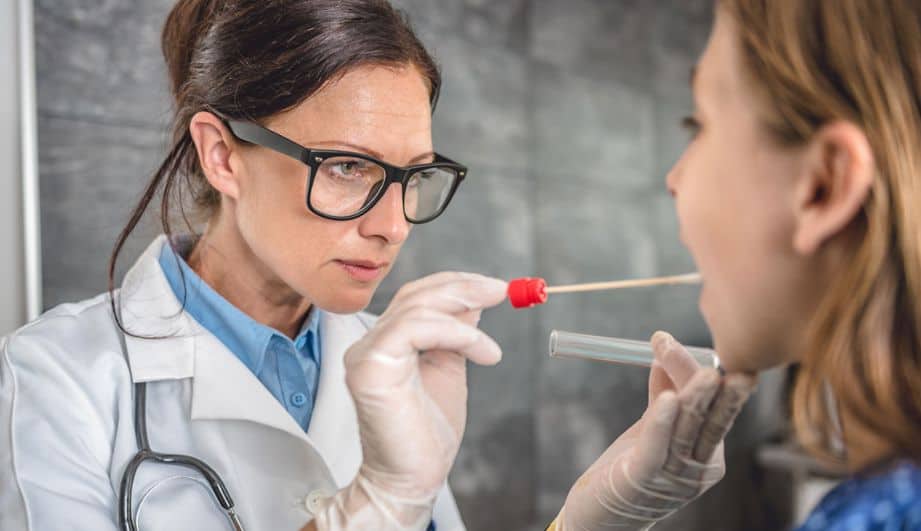Regular testing is important but increasing the number of tests for effective monitoring of SARS-CoV-2 faces many obstacles.
Regular monitoring of a large number of people will play a huge role in monitoring the transmission of SARS-CoV-2. Rapid detection and isolation of active cases – that is, individuals who can transmit the virus, whether symptomatic or asymptomatic – is a key tool in limiting the spread of the disease.
In addition, accurate data on the number of active cases are required for health policy-making and related measures (at local, and wider, e.g. prefectural, regional or national level). Also, regular screening is important to know and each person individually who’s the short-term risk of transmission and how safe it is to return to the workplace, at school, etc. However, increasing the number of tests for effective SARS-CoV-2 surveillance poses many obstacles.
One of them is the need to get nasopharyngeal smears which can be unpleasant, which discourages people from getting tested often. Coatings should also be collected by someone who has been trained to do so, adding another barrier to logistical support and putting those who take the shot at risk of exposure. In addition, the rapid global spread of SARS-CoV-2 has caused huge problems in supply chains that provide materials for molecular tests, including coating swabs and the necessary reagents.
Researchers at Yale University in the United States have tried to overcome some of these obstacles by developing a program called SalivaDirect, which relies on saliva testing instead of a nasopharyngeal swab. While still based on a similar molecular process to previous tests (called RT-qPCR), it is simpler to reduce costs and the need for reagents.
The Professors of the Therapeutic Clinic of the Medical School of the National and Kapodistrian University of Athens, Efstathios Kastritis and Thanos Dimopoulos (Rector of EKPA), summarize below the data related to this program.
«First, the molecular test is done from a saliva sample and not from a nasopharyngeal smear. In addition to making it easier to collect the sample, the researchers found that expensive preservatives were not required for saliva tests, which reduced costs. The researchers also tried and succeeded in circumventing the process of extracting the nucleic acid from the samples before the test. Nucleic acid extraction is time-consuming and costly and there have been global shortages of consumables needed to do so. So for SalivaDirect, they have managed to skip this step, making the test accessible to more labs. The test is flexible as different variants of equipment can be used in different laboratories and reagents.
SalivaDirect received “rapid” licensing (it is only an initial approval) from the FDA on August 15, so that its development can proceed further could be an excellent tool that laboratories can use for quick examination of many people, while significantly addressing the problem of adequacy of consumables. But additional improvements and additional tests are required. Efforts are also being made to increase the number of people who can be tested per day. Process automation is also necessary and researchers are working with various institutions to develop validation robotic systems for sample processing and / or PCR.
Most of the available tests for SARS-CoV-2 have not been validated to detect asymptomatic infections, which is the primary goal of a large-scale screening and population monitoring program. “SalivaDirect will need to be compared to conventional methods for detecting such cases.”
Researchers have their research available on the pre-publishing platform medrxiv.org.
